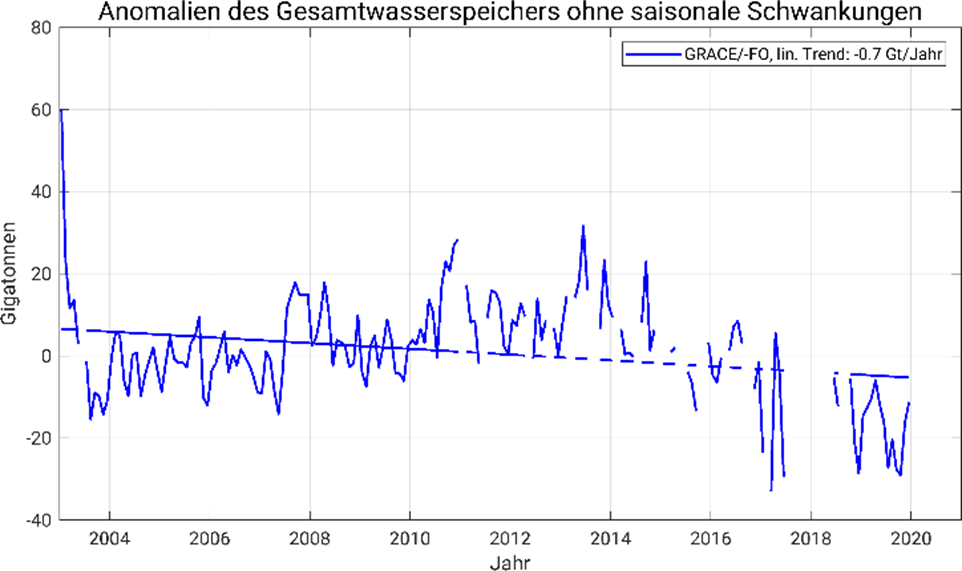The Terrestrial Water Storage (TWS) of Germany has decreased by 15.2 cubic kilometres during the past two decades which is equivalent to 760 million tons per year.
This is the result of a study conducted by researchers of GeoForschungsZentrum Potsdam in cooperation with Forschungszentrum Jülich und University of Bonn. Co-authors of the study are Prof. Dr. Jürgen Kusche, Speaker of the Uni-Bonn-based Collaborative Research Centre 1502 DETECT as well as Prof. Ph.D. Stefan Kollet, Principal Investigator of DETECT’s research project D02. The losses in TWS are caused by decreasing soil moisture, dwindling ground water, melting glaciers and declining water levels.
 Figure: Helena Gerdener
Figure: Helena Gerdener
The study is mainly based on observations of the GRACE (2002-2017) and GRACE-Follow On (since 2018) satellite missions. To obtain more robust results, the authors have compared four different methods to process the measurements and received significantly smaller losses of TWS than other studies that have been based on only one method.
The figure shows the temporal variations of the total water storage over Germany, with the large seasonal variations (summer vs. winter) already removed. We can see that in particular the recent dry years affect the trend.
Read more:
https://www.uni-bonn.de/de/neues/deutschland-verliert-durchschnittlich-760-millionen-tonnen-wasser-pro-jahr
https://www.gfz-potsdam.de/presse/meldungen/detailansicht/deutschland-verlor-in-den-letzten-zwei-jahrzehnten-durchschnittlich-760-millionen-tonnen-wasser-pro-jahr

